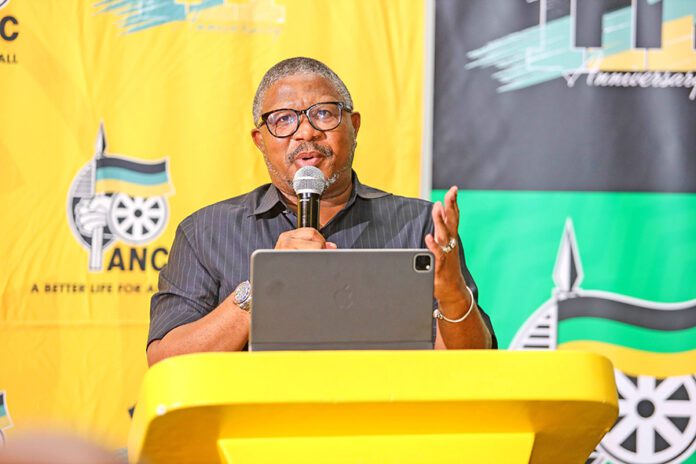No ANC structure has been more obsessed with the governing party’s renewal agenda than its Veterans’ League – a movement made up of old ANC stalwarts, most of whom were instrumental in the unseating of the apartheid regime.
The Veterans’ League even compares the renewal project to the 25 years of radical and militant activism programme that propelled the party from the formation of the Youth League in 1944 to the militant Morogoro conference in 1969. That was a high pitch.
Any self-respecting ANC leader would salivate at the possibility of the party returning to those exciting days that would remind voters of its dedication to the poor black majority it was established to serve.
Under former president and current interim leader Snuki Zikalala, the Veterans’ League’s stated goal is to produce practical solutions to the party’s future survival. In doing so, it would tap into its collective experience and knowledge to redefine the organisation in an environment in which political wannabes seek relevance.
Zikalala should be careful not to water down the moment by speaking about a possible ANC-DA coalition after the general elections next year.
The suggestion of a coalition with the DA could be interpreted as a tell-tale sign that the liberation movement may be losing its shine and commitment to its original ideals, and this could further weaken its base and voter support.
Indeed, the ANC is at its weakest state ever, and many commentators think its renewal project may just be a pipe dream. The governing party is entrenched in a culture of corruption and nepotism.
Yet, the veterans are a fountain of institutional memory in every organisation. They have the experience to guide the next generation. That way they can provide the necessary leadership to ensure the organisation’s goals were met.
According to Zikalala’s team, they draw inspiration from some significant historical moments mentioned above including the 1949 Programme of Action and the 1952 Defiance Campaign.
Throughout these crusades, the ANC leadership rose to the occasion to ensure the organisation was kept alive into the unknown future. The ANC adapted to a modernising South African culture, and continued to exist and shape the country’s history, providing a platform for its leadership to find ways to grow, adapt and remain relevant.
The leadership developed strategies to ensure its continued existence and to make certain it remained a powerful force in the country’s political landscape.
These moments were pivotal for the ANC. They served as a galvanising force in the face of increasing opposition. They also provided the organisational structure for continuity and sustainability.
The formation of the ANC Youth League in 1944 was a major event in South Africa’s political history. The Youth League was instrumental in pushing for the ANC to adopt a more militant stance against the apartheid regime. This led to greater international and local support for the ANC. The movement became more vocal inagitating for the apartheid government to end its oppressive policies.
In 1949, the ANC adopted the Programme of Action, which called for mass mobilisation and direct action to fight against racial oppression and defend the rights of all South Africans. This was a response to racial segregation and discrimination, setting out a plan for how it would fight for freedom and justice for a free South Africa.
The Programme of Action called for boycotts, strike action, civil disobedience and non-violent protests to challenge the existing political and economic order. The programme also called for the nationalisation of the land and mines, for state control of the banks and for the redistribution of wealth.
In 1952, the ANC launched a campaign of civil disobedience – the Defiance Campaign calling for South Africans to peacefully break unjust laws and defy segregation – a response to apartheid’s repressive policies, which included curfew regulations, banning of political parties and criminalisation of public protest.
The campaign saw thousands of South Africans from all walks of life and racial backgrounds take to intensive programmes of civil disobedience. The frequency of boycotts, sit-ins and strikes against the illegitimate government increased.
In 1969, the ANC held the Morogoro conference in Tanzania. At the conference, the organisation adopted the “Morogoro Strategy and Tactics” document, a revised version of the Programme of Action to guide the ANC and its affiliates in the struggle against apartheid.
Among others, the document outlined the ANC’s ideological stance and strategy to intensify the struggle against apartheid government for economic, political, and psychological warfare. It set out a plan of action for the ANC to end apartheid and create a more just and equitable society.
It remains to be seen what Zikalala’s renewal project holds for the future. Will it radicalise and rejuvenate the moribund ANC? The questions remain.
Follow @SundayWorldZA on Twitter and @sundayworldza on Instagram, or like our Facebook Page, Sunday World, by clicking here for the latest breaking news in South Africa.



